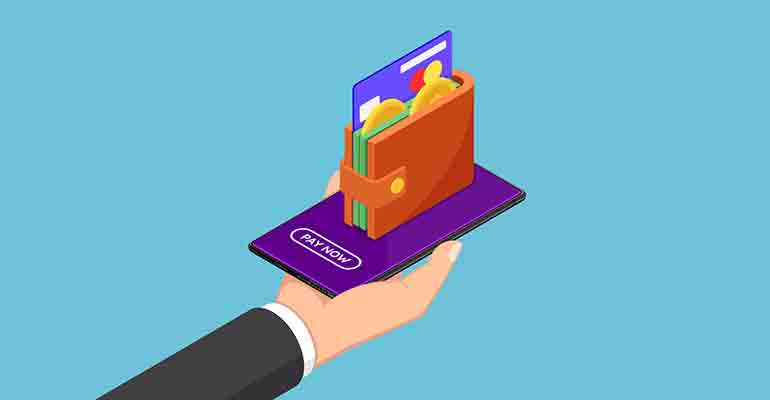E-Wallet refers to an electronic device that stores digital cash. It is also known as a virtual wallet and can be either stored in the cloud or on your computer, phone, tablet etc. The digital money stored within it is usually encrypted and works like a prepaid card.
You can use a debit card to make transactions and withdraw funds from ATMs. Although the security is not as strong as that of a credit card, it works without having to divulge your financial information. It is used in online transactions and stores all data on servers using state-of-the-art encryption algorithms that are difficult to decrypt.
Are E Wallets Safe?
Yes they are as long as you are using it for legitimate transactions. These e-wallets act like virtual bank accounts that help ease online payments, acting like a real wallet (without the need to carry physical money), and provide low cost international remittance service.
Different Types of E-Wallets
There are many different types of e-wallets. Virtually every online payment service offers one of its own. They can be classified as follows:
Bank accounts with digital wallet option (e.g. Fidor) Online banking accounts with digital wallet option (e.g. ING-DiBa, Barclays UK) E-commerce platforms that have their own wallets or partner with others (e.g. PayPal, Alipay, Facebook) Mobile payment systems that have their own wallets or partner with others (e.g. m-pesa, bKash) Operator specific e-wallet solutions (iTunes store account, SIM toolkit) Payment card replacement e-wallets (e.g. Ukash, Paysafecard).
How to securely store my E-Wallet?
You must protect your e-wallet ID and password. This is the first step of securing your e-wallet. Most of the online payment services offer secure storage of digital cash via encryption algorithms (e.g. AES, RSA etc.). If you lose it, you become a victim of identity theft and you will not be able to access your funds. So it is very important that you keep them safe.
Two Factor Authentication
Many e-wallet service providers also offer two factor authentication such as: Google Wallet, Skrill (Moneybookers), PaySafeCard, Apple Store etc. Two factor authentication adds an extra layer of security to your e-wallet. For example, if a hacker steals your password and username for accessing Google Wallet – they wouldn’t be able to access it without the one time pin code that is sent to you via a text message or a phone call or a special app on your smartphone. This means that even if a hacker gets your login details, they still can’t get into your account.
Do E-Wallets offer better Security as compared to Credit Cards?
Yes, e-wallets offer much better security as there is no requirement of sharing any financial information with the merchant or anyone else. All transactions are done using a simple username and password. So if you are using any e-wallet service provider’s services, you don’t have to worry about your credit card information being hacked by cyber criminals because it is not stored anywhere on the merchant side. For example, if you are using PayPal or Skrill or Apple Store – these are highly secure payment methods as all financial information is stored on PayPal’s servers.
